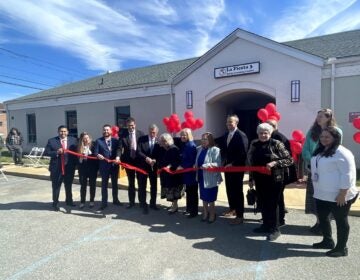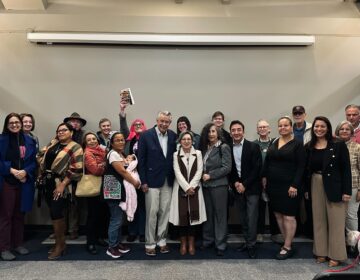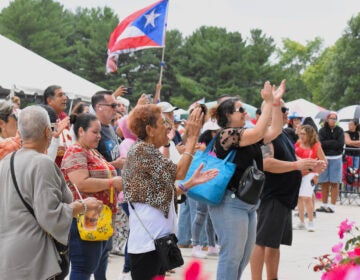How Delaware’s Hispanic Commission works to improve economic outcomes for Latinos
A key priority for Delaware’s Hispanic Commission is ensuring immigrants can use their degrees from their native countries.
Listen 1:43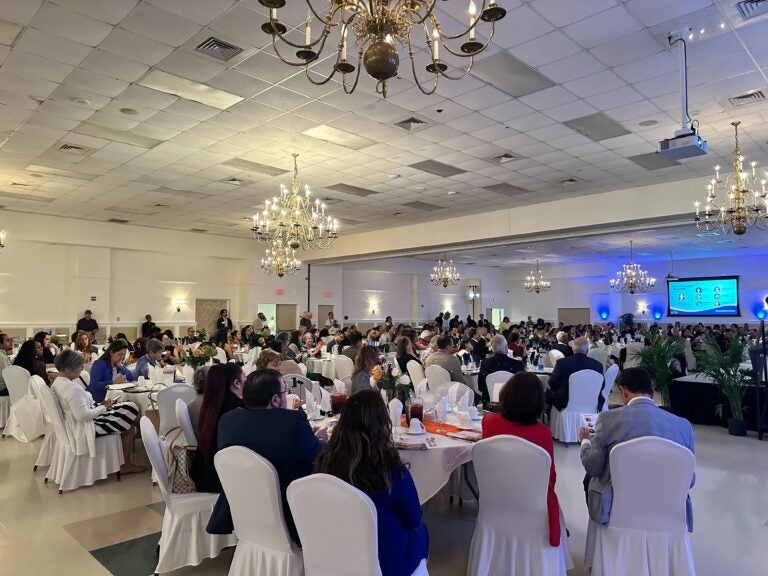
The 2024 Latino Forum brought together nearly 300 individuals to discuss issues within workforce development, education, legislation, and immigration affecting the Latino community. (Johnny Perez-Gonzalez/WHYY)
From Philly and the Pa. suburbs to South Jersey and Delaware, what would you like WHYY News to cover? Let us know!
“So often we are that cellophane paper that is transparent, making noise, but still transparent. They don’t see us. We want them to see who we are and where we are.”
That’s how Carlos de los Ramos described the Latino community’s strong commitment to making their presence known in Delaware.
As chair of the Delaware Hispanic Commission, de los Ramos was among nearly 300 individuals, ranging from community members to organizational representatives, advocates, and legislative leaders, at the 2024 Latino Forum this week. The event, hosted by the DHC, focused on critical issues affecting the state’s Latino community and provided a platform for in-depth conversations focusing on workforce development, education, legislative updates, and immigration.
Keysly Perez-Hernandez was among those in attendance at the forum in Dover. The 23-year-old Guatemalan migrated to the United States at the age of 13. She said navigating her life to this point hasn’t been easy, but her struggles have inspired her to make a difference and give back to her community.
“Yo no tenía tantos recursos”, dijo al recordar la falta de recursos cuando recién emigró a Delaware. “Me gusta dar lo que algún día yo quise recibir y [hablar] por las otras personas que no pueden es muy importante y aquí hay tantas personas que pueden ayudar para que nuestra comunidad pueda ser mejor.”
“I didn’t have that many resources,” she said, remembering the lack of resources when she first immigrated to Delaware. “I like to give what one day I wanted to receive, and I believe speaking for other people who cannot is very important. And there are so many people here who can help our community be better.”
At La Esperanza in Georgetown, Perez-Hernandez serves as a Legal Assistant for Victims and Navigator, providing crucial support to Sussex County’s Latino community.
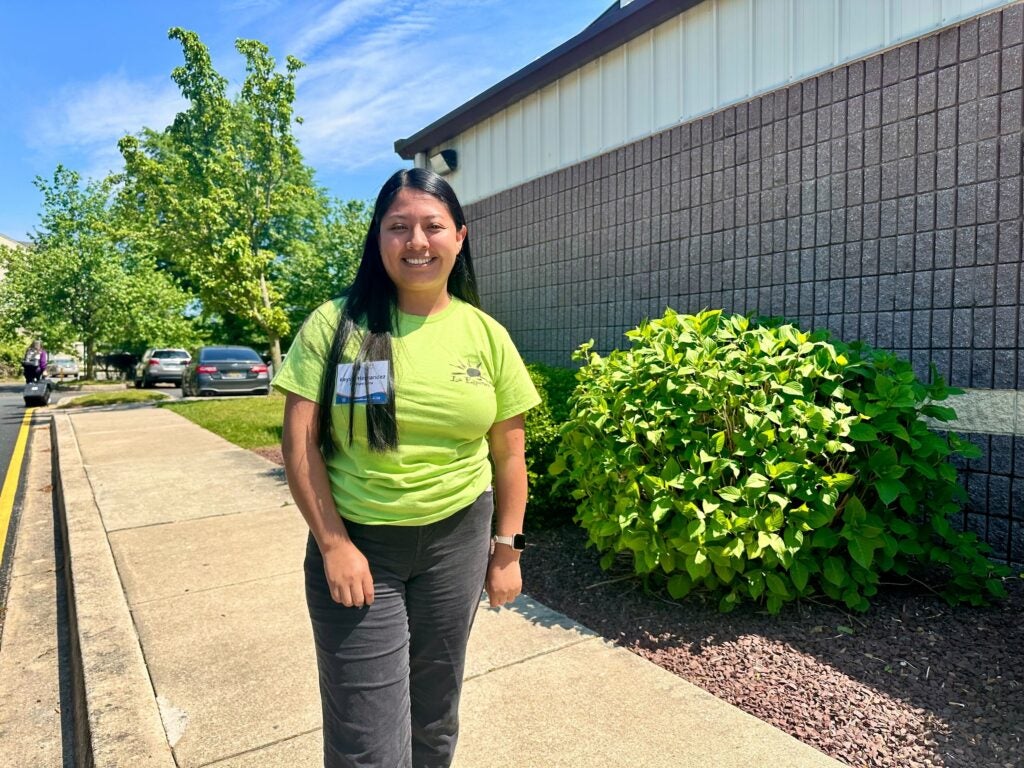
Working closely with those individuals, she has witnessed the challenges faced by by many of them who are unable to use their education or certifications from their native countries—an experience she personally relates to as well.
“Alrededor de mi familia tengo a personas que son profesionales en mi país, pero a la hora de venir aquí ellos no tienen las mismas oportunidades”, ella añadió. “ Estamos aprendiendo cómo pueden transcribirse los créditos y pues demostrar que tenemos muchas habilidades como comunidades, nada más que nos faltan los recursos.”
“Around my family, I have people who are professionals in my country, but when it comes to coming here, they do not have the same opportunities,” she added. “We are learning how credentials can be transcribed and to show [others] that we have many skills as communities, the only thing is we lack resources.”
De los Ramos agrees with her observations, noting that this tendency often leads these communities to opt for general labor rather than effectively utilizing their professional skills.
Addressing this issue is one of the next steps DHC is working to correct.
“We are looking into what can we do for those professionals, what can we do for those that bring us those [other] educational levels to this country? How can we help them in getting necessary certificates and approvals for them to really apply the knowledge and really support the economy of the state, economy of this country,” he questioned.
When discussing education, DHC vice chair Rony Baltazar-Lopez drew attention to the graduation rate disparities among Latino students compared to others.
“Our graduation rates across the state are the lowest compared to our Black and white counterparts… We need more assistance, more resources, more money funded towards English learners or students who come here from different countries and who are assimilating into this school system,” Baltazar-Lopez said.
He shared brief legislative updates impacting the Latino community, including support for a measure that aims to enhance education for English Language Learners through grant-funded literacy programs in elementary schools. Advocates are pushing to extend these programs into high school for a more sustained impact.
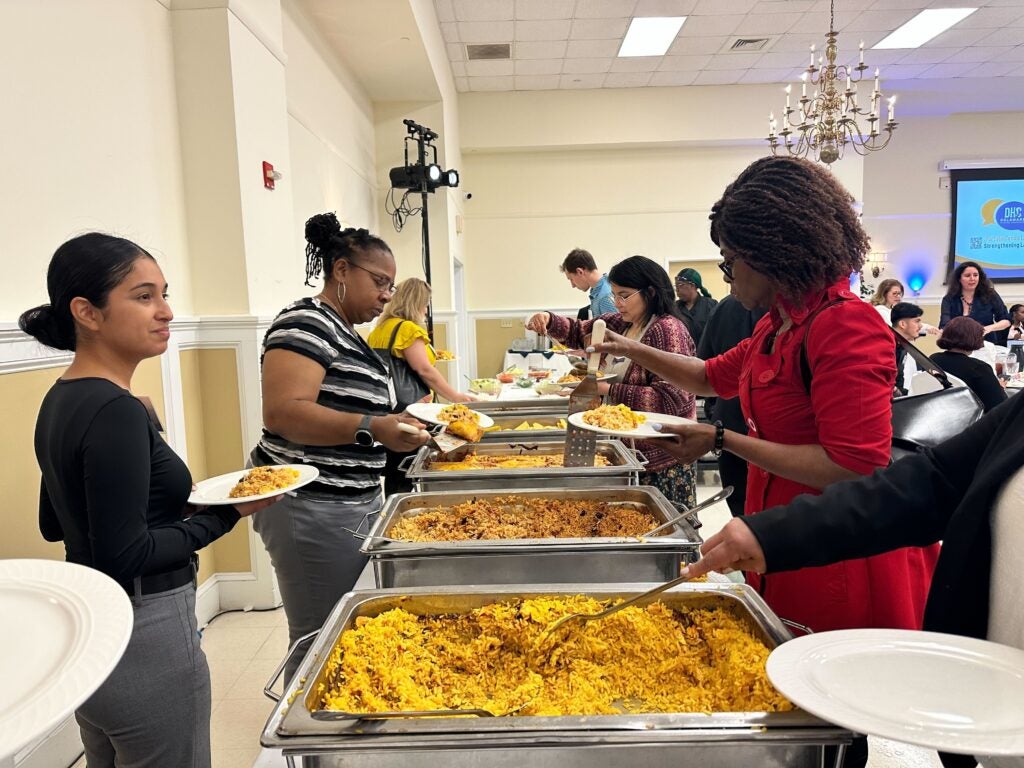
DHC is also backing a bill that would officially codify the commission. “We are the last standing commission right now that is not codified,” Baltazar-Lopez said. “We exist through Executive Order #84, and our ability to be removed, to cease to exist is a threat to us as a community.”
Baltazar-Lopez says codifying DHC will safeguard the interests of more than 100,000 Latinos in Delaware and, importantly, enable Latino representation in legislative conversations and committee hearings.

Get daily updates from WHYY News!
WHYY is your source for fact-based, in-depth journalism and information. As a nonprofit organization, we rely on financial support from readers like you. Please give today.



